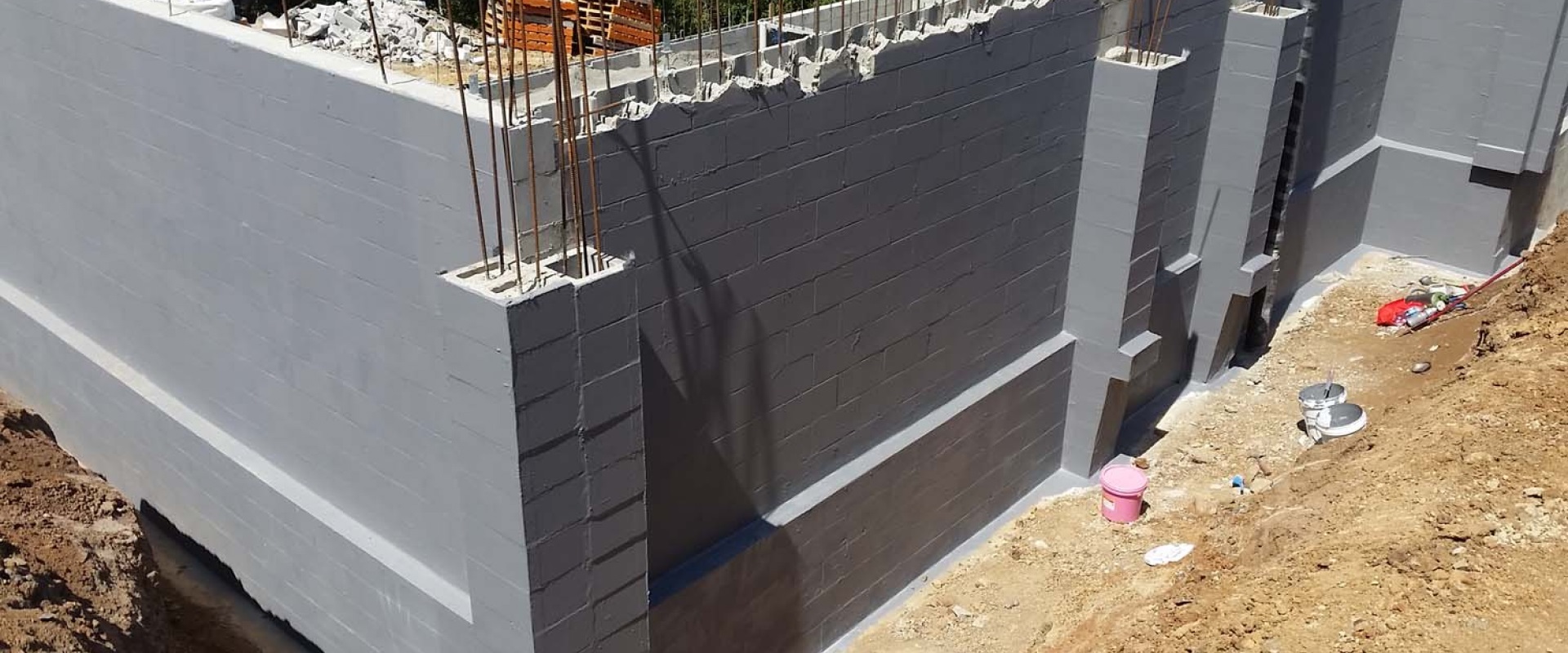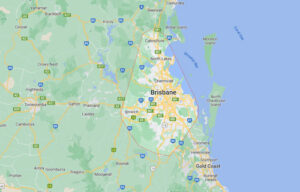
Enjoy lasting peace of mind with durable, longlasting termite barriers
Are you looking to protect your Queensland home or business from termites?
When it comes to termite treatment, prevention is better (and cheaper) than a cure. Affordable termite barriers help reduce thr risk of termite colony growth and protect your property against the threat of significant damage.
At Mr. Termite, we offer a range of innovative barriers designed to prevent termites from infiltrating your property. Across physical and chemical barriers, we fortify your property’s foundations and vulnerable entry points.
If you’re ready to enjoy lasting peace of mind against potential termite infestations, we’re ready to help. Get in touch on 0411 642 351 to learn about our inspections, control and and maintenance solutions.
When should I consider termite barriers?
Implementing efficient and proactive termite protection strategies is key to safeguarding your property. If you’re unsure, here are some indicators to help you assess your needs.
Location: Queensland’s warm and humid climate makes it highly susceptible to termite activity. Whether you’re on the Gold Coast, in Brisbane or in Ipswich, the conditions are attractive to termites.
Prior Infestations: If your property has a history of termite problems or you’re aware of termite activity in nearby properties, it’s a strong indication that you should invest in barriers as a preventive measure.
Wooden Structures: If your home has a significant amount of timber or wooden components, such as framing, decking, or fencing, termites are more likely to be attracted to your property. Termite barriers can offer protection in such cases.
Regular Inspections: Schedule regular termite inspections by professionals who can assess the risk level and recommend appropriate termite prevention measures.
Property Design: Certain property designs and construction materials can make it easier for termites to access and damage your home. If your property has design features that may be vulnerable to termite intrusion, it’s wise to consider barriers.
Nearby Trees and Vegetation: Large trees, bushes, or garden beds close to your home can provide a pathway for termites. If you have significant vegetation near your property, it’s essential to consider barriers as a protective measure.
Peace of Mind: Ultimately, the peace of mind that comes with knowing your property is protected from the devastating effects of termites is a significant factor. If you’re concerned about potential termite damage, it’s worth exploring barriers as a preventive step.
How much do termite barriers cost?
The cost can vary significantly depending on several factors, including the type of barrier, the size and design of your property, and the specific needs of your situation. Here’s a general overview of potential costs.
- Type of Termite Barrier: There are different types of termite barriers, such as chemical barriers (liquid or baiting systems) and physical barriers (like steel or concrete). The cost can vary based on the type you choose.
- Property Size: Larger properties typically require more materials and labour, which can increase the overall cost. The layout and design of your property also play a role.
- Installation Method: The method used to install the barrier can affect costs. For example, installing a chemical barrier may involve drilling and trenching, which can impact the price.
- Property Accessibility: If your property is challenging to access due to landscaping or other obstacles, it may require more labour and equipment, potentially increasing the cost.
- Termite Risk Level: Properties with a higher risk of termite infestations may require more extensive and costly barrier systems.
To get an accurate cost estimate, reach out and speak to a member of the Mr. Termite team on 0411 642 351 today.
How long do termite barriers take to install?
The time it takes to install termite barriers can vary depending on several factors, including the type of barrier, the size and layout of your property, and the specific conditions at the installation site. Here’s a general idea of the timeframes you can expect:
Chemical Barriers: Liquid chemical barriers, which involve trenching and applying termiticides around your property’s perimeter, can typically take one to two days for an average-sized home. Larger properties may require more time.
Physical Barriers: Installing physical barriers, such as stainless steel mesh or concrete slabs, may take longer, possibly several days to a week or more, depending on the complexity of the installation. This can also be influenced by factors like the need to move landscaping features or obstacles.
Baiting Systems: Termite baiting systems may take several weeks to months to become fully effective. This method involves monitoring termite activity and strategically placing bait stations. The installation itself may not take long, but the monitoring and baiting process is ongoing.
Soil Treatment: Some barriers involve treating the soil beneath and around the structure. This can take a day or more, depending on the size of the area that needs treatment.
Assessment and Planning: Before installation, a professional will conduct a thorough assessment of your property to determine the appropriate type of barrier and its placement. This assessment can take a few hours to a day, depending on the complexity.
Post-Installation Inspection: After installation, it’s essential to have follow-up inspections to ensure the barrier’s effectiveness. These inspections may occur at intervals ranging from a few months to a year or more.
How can I identify professional termite control experts?
Identifying a professional termite barrier service provider involves a few key steps to ensure you receive reliable and effective termite prevention services. Here’s how you can identify a professional.
Check Licensing and Certification: In Queensland, pest control professionals must be licensed and certified to handle termite barriers. Ensure that the company and technicians you consider have the necessary licenses and certifications. You can verify this information with the Queensland Health Pest Management Unit or a relevant regulatory authority.
Experience and Reputation: Look for companies with a solid track record and a good reputation in your local area. Ask for references or read online reviews and testimonials to gauge the quality of their services.
Ask for Recommendations: Seek recommendations from friends, family, or neighbours who have recently had termite barrier work done. Personal referrals can be a valuable source of information.
Insurance Coverage: Verify that the pest control company carries liability insurance. This protects you in case of accidental damage during the installation process.
Written Estimates: Request written estimates from multiple providers. Compare the cost, scope of work, and any warranties or guarantees offered. A professional company should provide you with a detailed proposal.
Site Inspection: A reputable termite barrier service will conduct a thorough on-site inspection of your property before providing a quote. This assessment helps them determine the extent of the work required.
Transparent Processes: Ask questions about the type of termite barrier they recommend and the installation process. Professionals should be willing to explain their methods clearly and address any concerns they have.
Warranties and Guarantees: Inquire about the warranty or guarantee offered for their termite barrier services. Understand the terms and conditions, including any ongoing maintenance requirements.
Contracts and Documentation: Ensure that all terms and conditions are clearly outlined in a written contract. Review the contract carefully before signing, and don’t hesitate to seek legal advice if needed.
References: Ask the company for references from past customers who have had termite barrier work done. Contact these references to inquire about their experiences.
What is the best barrier for termites?
The best barrier for termites can vary depending on factors such as the specific needs of your property, your location, and your budget. Here are some effective termite barrier options:
Chemical Barriers
- Liquid Termiticides: These are applied in the soil around and beneath your home’s foundation. They can create a chemical barrier that termites cannot penetrate. Popular choices include termiticides containing imidacloprid or fipronil.
- Baiting Systems: These use termite baits placed strategically around your property. Termites consume the bait and bring it back to the colony, eventually eliminating the colony. It’s a slower process but can be highly effective.
Physical Barriers
- Stainless Steel Mesh: This is installed around the perimeter of your property to prevent termites from entering through cracks and gaps in your foundation.
- Concrete Slabs: A solid concrete slab foundation can act as a physical barrier to prevent termite intrusion.
- Termite-resistant Building Materials: Using termite-resistant materials in construction, such as treated timber or concrete blocks, can also act as a barrier.
Combination Approaches
- Integrated Pest Management (IPM): Combining multiple methods, such as regular inspections, chemical barriers, and baiting systems, can provide comprehensive protection.
Regardless of the type of barrier, regular inspections by a professional are essential to detect and address any signs of termite activity promptly.


